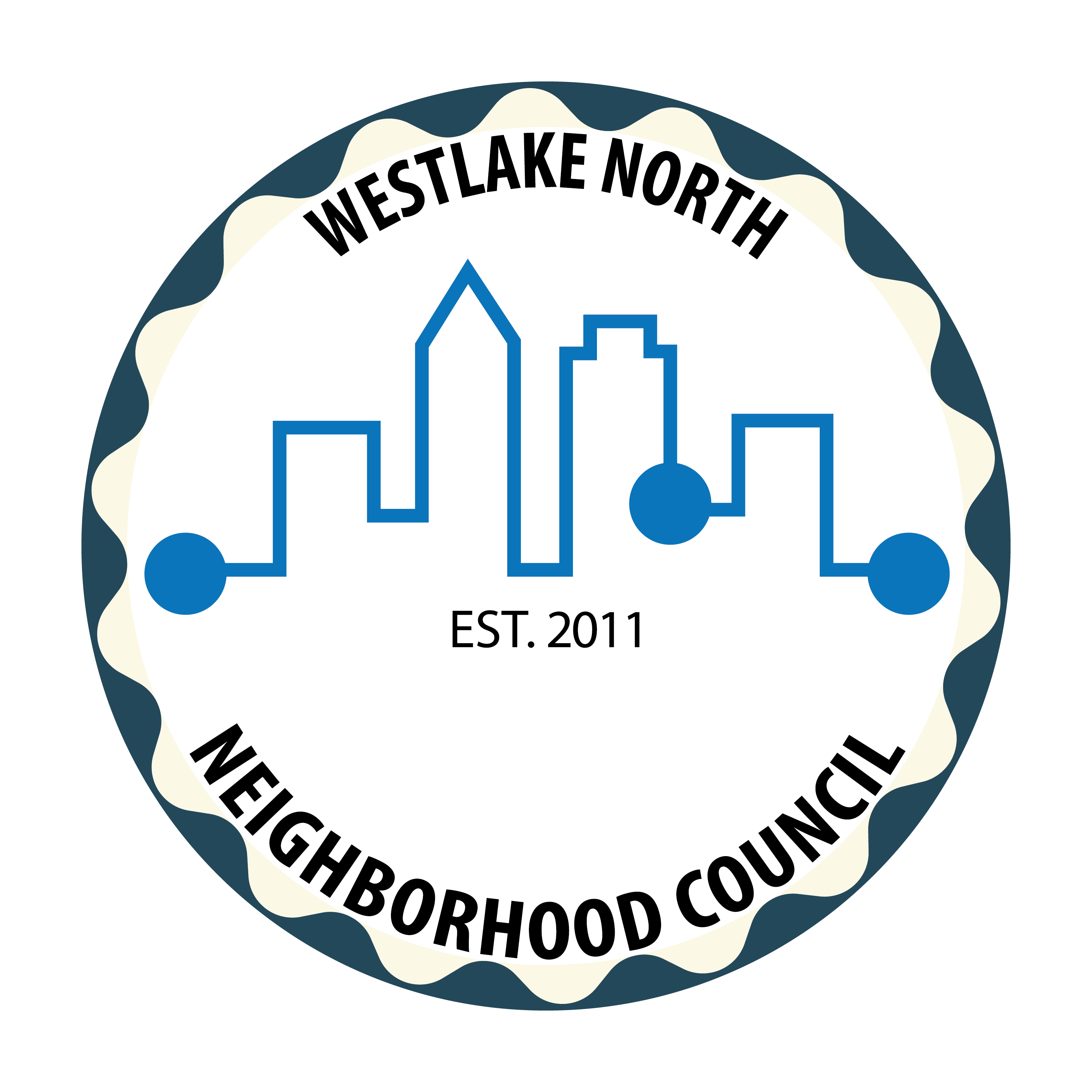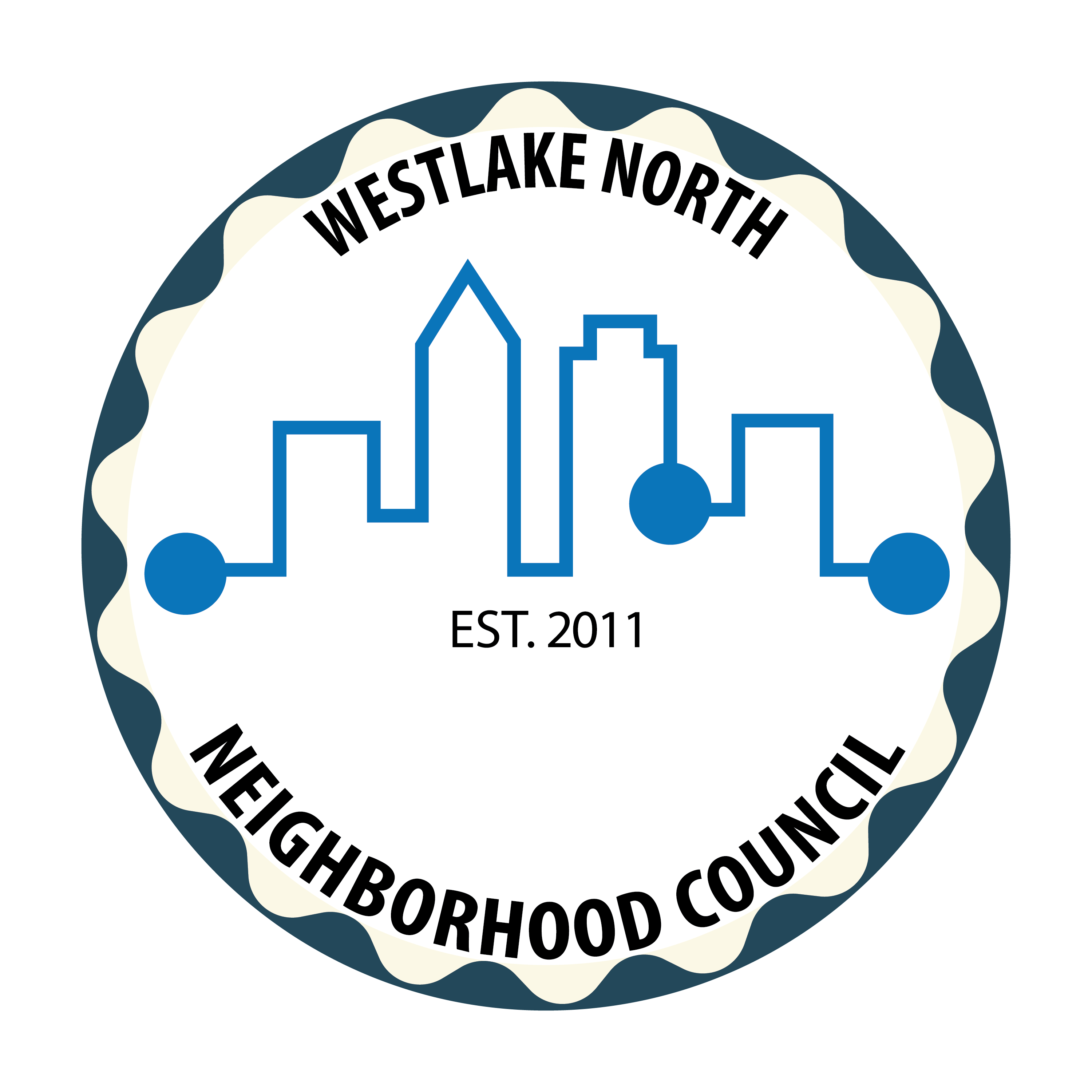About Us
The Westlake North Neighborhood Council (WNNC) is an advisory group of people who live, work, or own property within the boundaries of the Westlake North Neighborhood Council. The boundaries are as follows:
- To provide an inclusive and open forum for public discussion of issues of interest to the Council, including City governance, the needs of the Council, the delivery of City services to the Council area, and other matters of a City-wide nature;
- To advise the City on issues of interest to the Council, including City governance, the needs of the Council, the delivery of City services to the Council area, and other matters of a City-wide nature;
- To initiate, execute and support projects for the physical, social and cultural improvement of the Council area; and
- To facilitate communication between the City and Community Stakeholders on issues of concern to the community and/or the Stakeholders.
- To respect the diversity, dignity, and expression of views of all individuals, groups, and organizations within the community and/or involved in the Council;
- To remain non-partisan with respect to political party affiliation and inclusive in our operations including, but not limited to, the process of electing or selecting the Governing Board, Officers, and committee members, as hereinafter set forth;
- To utilize the Early Notification System (ENS) to inform the Council and Community Stakeholders of matters involving the City and our community in a way that is tailored to provide opportunities for involvement in the decision-making process;
- To encourage all Community Stakeholders to participate in activities of the Council;
- To prohibit discrimination against any individual or group in our operations on the basis of race, religion, color, creed, national origin, ancestry, sex, sexual orientation, age, disability, marital status, income, homeowner/renter status, or political affiliation; and
- To have fair, open, and transparent procedures for the conduct of all Council business.
We’re composed of neighbors, by neighbors, for neighbors to make a positive difference in our neighborhood.
As an official part of Los Angeles city government, we’re very different from other community organizations. We have special duties and unique opportunities to change our neighborhood for the better.
The Neighborhood Council is you, your family, and your neighbors. It’s composed of people who have some type of connection to the geographic area the Council represents. Technically called “stakeholders,” these are people who live, work, or own property in the neighborhood; and they’re people who just care about the neighborhood through membership in a local organization or other similar involvement. The Neighborhood Council is open to everyone.
The Neighborhood Council deals with issues covered by the City of Los Angeles. Through an open and democratic process, we decide what matters most to us here in our neighborhood –- where we live, work, play, study, raise our families and look hopefully towards the future. We hold public meetings to gain information and hear diverse opinions about the issues. After a vote by the Governing Board, we take a position and issue our recommendations to the City.
The Neighborhood Council is an official part of Los Angeles city government. Written into the new City Charter, it is a formal public entity and has special powers and duties that are very different from other community organizations. The Neighborhood Council must follow the same open-meeting laws that ensure public access to the Los Angeles City Council and other local governments. It must follow the rules regarding the expenditure and record-keeping of public money. Its Governing Board Members must abide by a Code of Ethics as a commitment to principled decision-making and a safeguard against conflicts of interest. All of this empowers the Neighborhood Council with the lawful authority to act on City issues in an official advisory capacity.

